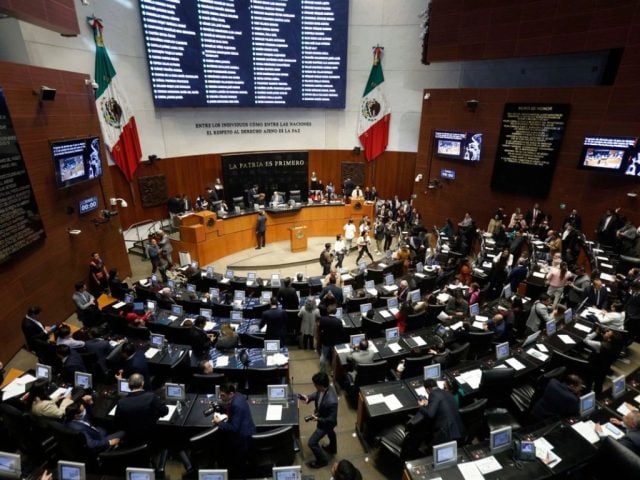Original article: México cierra brechas de impunidad: Senado aprueba Ley General contra la Extorsión
The Mexican Senate has unanimously approved the General Law for the Prevention, Investigation, and Punishment of Extortion Crimes, an initiative presented by President Claudia Sheinbaum Pardo. This law aims to empower the state with legal authority to close gaps in impunity and to prevent, investigate, and punish this crime throughout the country.
The law received 110 votes in favor and none against, and it has been returned to the Chamber of Deputies for ratification.
The bipartisan consensus reflects a strategic initiative aimed at directly combating one of the crimes that most negatively affects daily life, local commerce, and social trust in the country.
This legal framework stipulates that the crime of extortion will be pursued ex officio and defines it as the action of coercing another person to give, do, refrain from doing, or tolerate something, thereby obtaining a benefit or inflicting material, moral, physical, or psychological harm.
Closes Legal Loopholes That Facilitated Impunity for Years
One of the highlights of this new law is the standardization of the crime of extortion across all 32 federal entities, closing legal loopholes that facilitated impunity for years. This uniform legal framework will allow for a coordinated and effective national response.
By establishing ex officio prosecution, the state assumes the responsibility of initiating investigations, protecting victims from exposure. Additionally, it reinforces anonymous reporting through the 089 hotline (National Service for Anonymous Reporting).
Furthermore, penalties are being tightened, with the base sentence ranging from 15 to 25 years in prison and fines equivalent to 300 to 500 times the daily value of the Measurement and Update Unit (UMA).
In aggravated cases, the sentence can be increased to up to 42 years, and it enumerates a broad range of modalities, including extortion demands, deliberate traffic accidents to extort drivers, phone and digital extortion, as well as extortion committed from penitentiaries.
Indeed, inmates will no longer be permitted to have electronic devices in prisons, and those who violate this rule will face penalties of 6 to 12 years, which will also apply to officials and other staff in penitentiaries who allow the entry of phones and other devices, as reported by La Jornada.
Simultaneously, the regulation imposes penalties on public servants who fail to report or act negligently in the face of this crime, aiming to eradicate the complicity or inaction that has fostered impunity.
Protection of SMEs Against Extortion
This General Law seeks to significantly reduce the human and economic cost of extortion, protect small and medium-sized enterprises, and improve the investment climate by confronting criminal economies that distort markets and supply chains.
To this end, the state commits to implementing the law while respecting human rights; through protocols, internal controls, and legal standards that ensure ex officio investigations protect victims without allowing for abuses.
The law also aims to defend those who, according to the official narrative of the Fourth Transformation, «produce, initiate, and sustain community life,» through the establishment of a security policy that does not negotiate with crime and, on the contrary, strengthens penalties where appropriate, modernizes the state response, and enhances territorial coordination.










